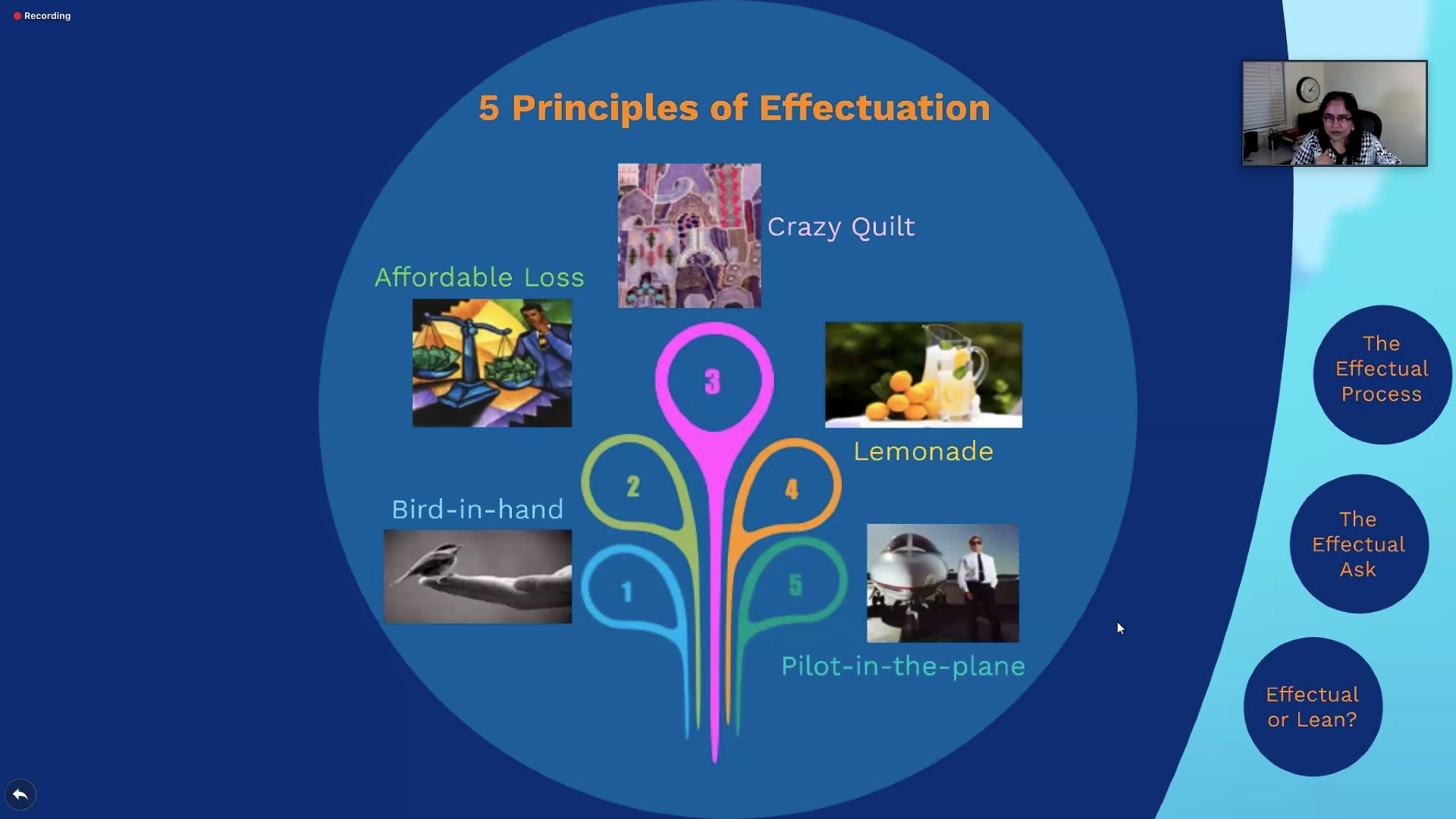I recently got a chance to attend a webinar organised by NSRCEL on Effectuation. I had heard about it from a few people, especially Prasanna from Upekkha. This webinar was being conducted by Prof. Saras, who is the co-creator of Effectuation theory, so I thought to gave it a shot.
What I learned was pretty interesting and ties up with my experiece in building startups. I don't think I have completely grokked the fundaes completely yet, but I am eager to learn & apply it. Sharing a few notes below.
 Effectuation - Principles
Effectuation - Principles
- The primary idea of effectuation is that the future is not something which is to be searched. Future is made. It is made by human actions.
- An entrepreneur begins with what he can do about a problem or an idea. Try to understand who he is, what are the networks and resources he has at his hand. This is called bird-in-the-hand principle. Rather than thinking about what he needs to start something, he begins with what he has.
- The next principle is affordable loss. The entrepreneur tries to asses what he can do without taking a big risk. What are the things he can do, without losing everything. What this does is - it reduces the bar to start. If you only have to do things which don't kill you, your bar to take the plunge is much lower.
- Once he has started doing something after understanding affordable loss, he needs to talk to other people or stakeholders to come in the journey with him. This is called crazy quilt. Since its a journey in creating the future, you need as much resources you need. Adding more people helps you increase your resources and hence the gamut of things you could do. It could be people who can help you build the product, investors or anyone who is willing to help you.
- As he talks to many people about his idea or work, he will get many people with advice. The idea is to take advice only from people who are willing to commit their resources to it. Be it in form of money, time, introductions, raw material or potential partnership. Don't worry so much about the initial idea you started with. If you are getting partners who are willing to make commitments of their resources, understand affordable loss and start buiding it.
- This is very different from the standard visionary entrepreneur story we often hear, of an entrepreneur who started with a vision and persisted till he succeeds. This approach assumes a predictable future - which the visionary founder has miraculously predicted correctly. Of course, this approach can also work - but it has lower chances of success. In a way, taking external funding exacerbate this situation, as you need to take the journey which you have bought the ticket for. I have written more about it in this post.
- The other principle is lemonade. It essentially says that the world is unpredictable. New challenges will often come in your journey. Like we are all facing the COVID-19 situation currently. But you need to take it into the stride. If life gives you lemon, make a lemonade. Thats what will allow you to discover new markets and possibilities
- Once you have partners who are willing to take the journey with you, now you can take the organization wherever you want. You are the pilot-in-the-plane who takes the business where you want. There is no "the" future where you need to go. It is you plane and you can take it wherever you think is right - and create that future.
These are just the 5 principles of Effectual thinking. I would write more about Effectual process on how one can apply this to their business and Effectual ask in future posts.
If you are interested in learning more about effectuation, checkout out effectuation.org